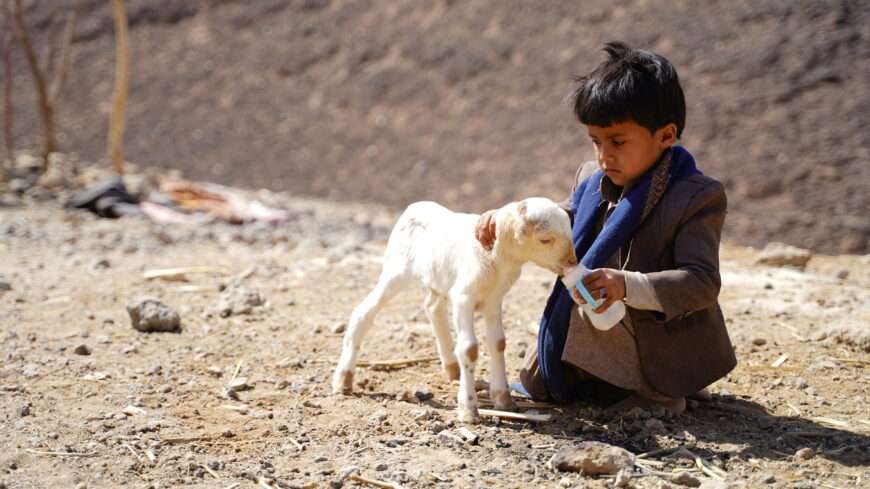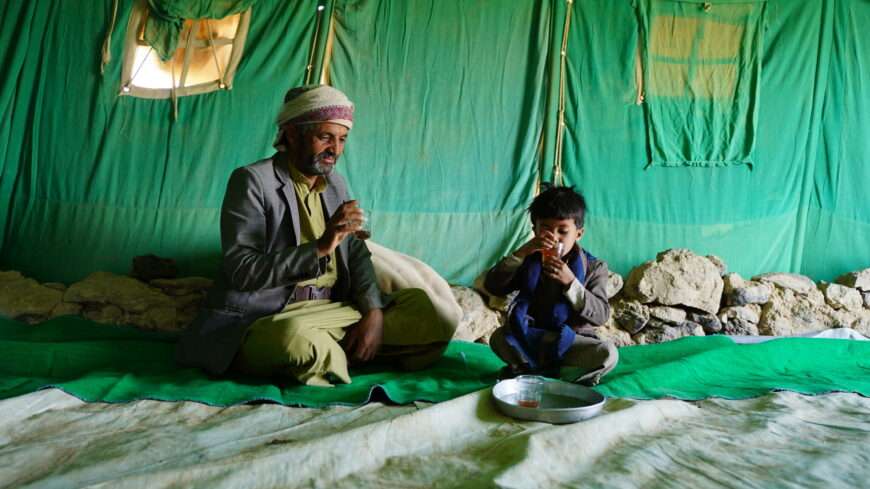A decade after a Saudi-led coalition intervened to restore the internationally recognized government of Yemen to power, the country remains deeply divided, facing economic freefall and a devastating humanitarian crisis, Oxfam said today.
Competing financial policies in the North and the South have caused economic collapse. Violations of human rights, the detention of humanitarian workers, and unacceptable conditions on aid imposed by the authorities in Sana’a have exacerbated suffering.
In the South, despite strong international support, the internationally recognized government has failed to provide basic services or stabilise the currency. Over the last 10 years, the Yemeni rial has depreciated by more than 90 per cent in government-controlled areas – pushing basics like food, water, and health care out of reach for most Yemenis. This inflation is only worsening – the rial lost 30 per cent of its value in February alone.
In the North, the Houthis have made it increasingly difficult and dangerous for the humanitarian community to operate and provide vital food, cash and other assistance. Their arbitrary and unlawful detention of Yemeni humanitarian workers and members of civil society has worsened the already difficult operating environment. Authorities should release all unlawfully held detainees, including Oxfam staff.
The environment of restriction and fear imposed by the Houthis, coupled with the US government’s freeze of foreign assistance funding and imposition of heightened legal risks, have caused many humanitarian organisations to wind down their operations, leaving millions of people without the means to survive and without access to education and health services. Families are facing higher prices and reduced humanitarian assistance.
Pauline Chetcuti, Oxfam International’s Head of Humanitarian Advocacy and Campaigns said:
“Yemenis deserve – and have the right – to live in safety, have access to food, water, health care and to lead on a path towards a peaceful future.
“The last decade has been devastating for Yemenis, and we’ll only see these deadly consequences compounded without urgent action from authorities and the international community to allow the economy and the aid community to operate.”
Education and healthcare services have been decimated, leaving millions without critically needed support, and civil servants without salaries. Health facilities across the country have been significantly impacted by the conflict; just 40 per cent are now only partially functioning or completely out of service due to shortages of staff, funds, electricity, medicines, and equipment.
The war has destroyed much of Yemen’s critical infrastructure – the roads, bridges, markets, hospitals, schools, and private factories that powered Yemen’s economy. Though the frontlines have largely been frozen since the ceasefire in April 2022, competing monetary policies and the absence of a full political settlement have left more than 17 million people – nearly half of Yemen’s population – food insecure.
Yemeni families are facing higher prices and reduced humanitarian assistance stemming from the US government’s designation of the Houthis as a Foreign Terrorist Organization. The designation creates significant obstacles to life-saving humanitarian assistance and commercial imports of food and medicine. It also adds a barrier to the vital flow of remittances from Yemenis abroad to their families, which account for approximately a fifth of Yemen’s GDP; a vital part of Yemen’s social safety net. Yemenis need to see an end to the Houthis’ rights violations and international attacks, but this designation is unlikely to make that happen. Governments should support international accountability mechanisms for all parties to the conflict – and not penalise Yemeni families by cutting off lifesaving aid.
The decade of conflict has killed over 19,000 people and displaced nearly five million people, disproportionately women and children. These figures will only grow as more legal and security barriers are placed on the economy and the aid community.
Chetcuti said: “Regional and global powers should collaborate to support a genuine peace instead of supporting aligned factions and furthering their narrow political interests. Only through a Yemeni-led political process that includes women, youth, and civil society can Yemenis emerge from crisis and enjoy basic peace and security.”
Notes to editors
Figures from Relief Web and UN.
The number of people estimated to experience food insecurity and malnutrition is expected to rise far beyond the figure listed above (17 million) due to global cuts to aid funding.
The 26 March 2015, is generally considered the start date of the international dimension of the conflict in Yemen with the start of airstrikes by the Saudi-led-coalition and reciprocated fighting by all parties, though it’s acknowledged the internal conflict started much earlier.
US is responsible for half of humanitarian programmes in Yemen which have stopped overnight, and the UK will taper its aid over a two-year period, with potential effects on humanitarian programming in Yemen.
Contact information
Rachel Scahevitz – [email protected]







